|
|

|

Seven Ancient Grains Whose Taste and
Nutritional Value You Will Love
by www.SixWise.com
Whole grains have been getting a lot of attention in the nutrition world for their heart-healthy benefits, but you can only eat so much whole wheat before things start getting dull.
Fortunately, there are many other grains out there that are loaded with health benefits and great flavor. Among them are ancient grains, which include not only wheat but also many other unusual grains that are worth making dietary staples.
|
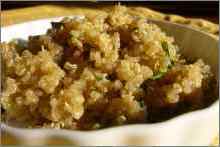 1. Quinoa 1. Quinoa
Pronounced "keen-wah," quinoa is actually a relative of leafy green veggies like Swiss chard. Native to South America, it was once considered the "gold of the Incas" because its high protein content gave warriors stamina.
Rich in manganese, magnesium, iron, copper, phosphorous and various other phytonutrients, quinoa is said to be beneficial for:
Plus, quinoa has a mild, nutty flavor and a creamy, slightly crunchy texture that's delicious.
|
|
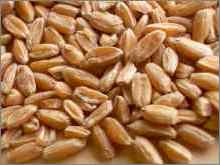 2. Spelt 2. Spelt
Spelt is an ancient grain with a nutty flavor that dates back before even wheat. Although it can be used in many of the same ways as wheat, it has a broader spectrum of nutrients and it is a great substitute for people with an intolerance to wheat.
Spelt was an important grain in ancient Greece and Rome, and is rich in vitamin B2, manganese, niacin, thiamin, and copper. It's said to help people with migraine headaches, atherosclerosis or diabetes.
|
|
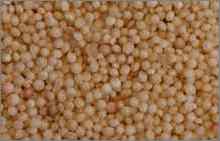 3. Amaranth 3. Amaranth
An ancient favorite among the Aztecs and American Indians, amaranth is a tiny, grain-like seed with a nutty, malty flavor. This grain is rich in iron, protein and calcium, and its flour makes a great substitute for wheat flour.
|
|
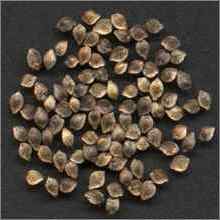 4. Buckwheat 4. Buckwheat
Buckwheat is a fruit seed related to rhubarb that originated in Central Asia. It's known to help:
Buckwheat is an excellent alternative to rice or porridge, and its flour has a mild flavor often used to make buckwheat pancakes.
|
|
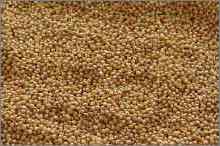 5. Millet 5. Millet
Millet, the smallest of all grain, is said to have originated in Ethiopia, and has been eaten since prehistoric times. Today, millet is still used to make Africa's traditional flatbread injera.
Millet is a complete protein and is rich in manganese, phosphorus, and magnesium. It has heart protective properties and can help to develop and repair body tissues.
When cooked, millet can either be fluffy like rice or creamy (by stirring it frequently and adding a little water). It can be eaten as a porridge or served as an alternative to rice or potatoes.
|
|
 6. Barley 6. Barley
Barley is the oldest of all grains, having been cultivated for about 10,000 years. It originated in the Middle East and North Africa, and has a nutty flavor and chewy texture. Barley is an excellent source of fiber, selenium, phosphorus, copper and manganese.
Barley is perhaps most popular in the United States as an addition to soups and stews, but you can also add cooked barley to veggies for a hot or cold side dish. Barley flour can also be used to make breads and muffins, while barley flakes make an interesting hot cereal.
|
|
 7. Rye 7. Rye
Rye has a rich flavor that's a favorite for making bread. Interestingly, rye was first cultivated in Germany, and is thought to have originated from a wild weed species that grew in wheat and barley fields.
Rye is rich in manganese, fiber, selenium, tryptophan, phosphorus, magnesium and protein.
Rye bread may be a particularly good choice for people with diabetes, as a study published in the American Journal of Clinical Nutrition found that wheat bread triggers a greater insulin response than rye bread.
Try bread made from whole rye as an alternative to wheat bread, or substitute rye flour for wheat flour to make pancakes, muffins and bread.
|
Recommended Reading
Fiber: Everything You Need to Know
Artichokes: The Phytochemical-Rich Thistle Vegetable with an Interesting History
Sources
The World's Healthiest Foods
To get more information about this and other highly important topics, sign up for your free subscription to our weekly SixWise.com "Be Safe, Live Long & Prosper" e-newsletter.
With every issue of the free SixWise.com newsletter, you’ll get access to the insights, products, services, and more that can truly improve your well-being, peace of mind, and therefore your life!
|
|
|
|